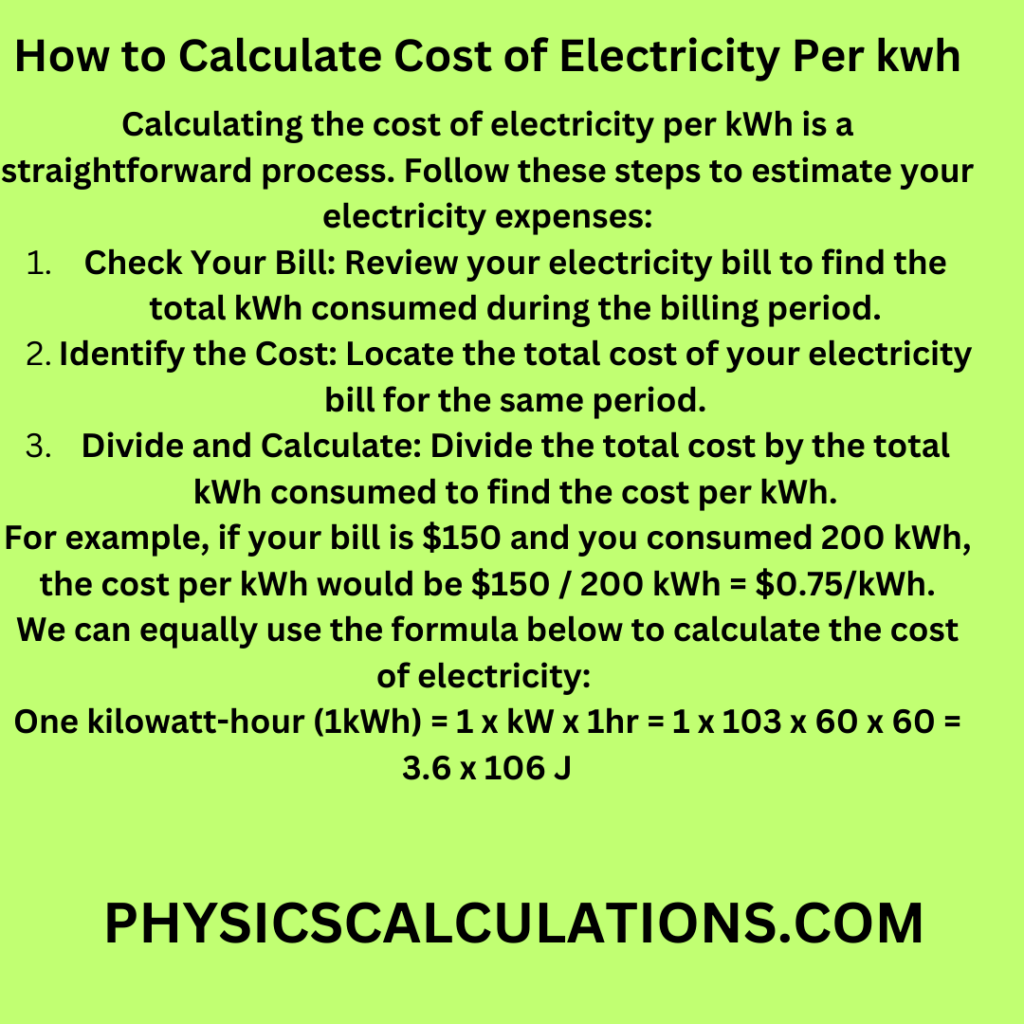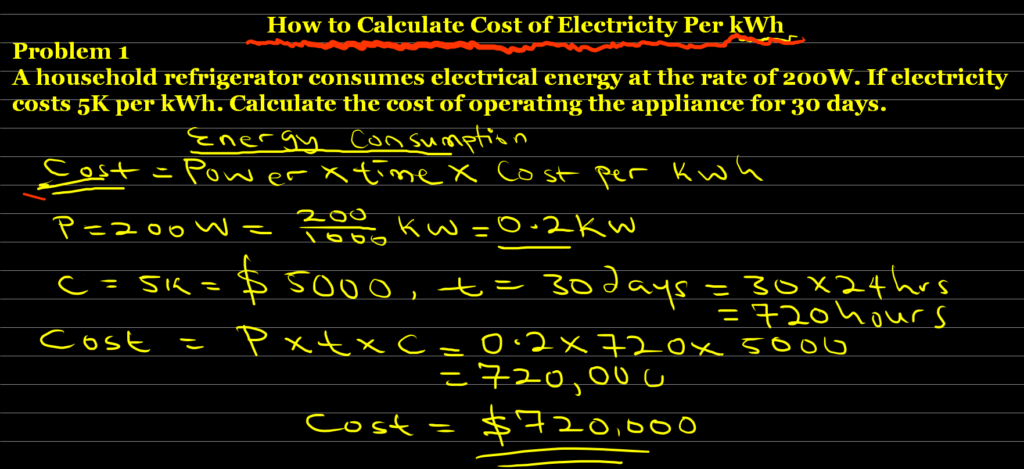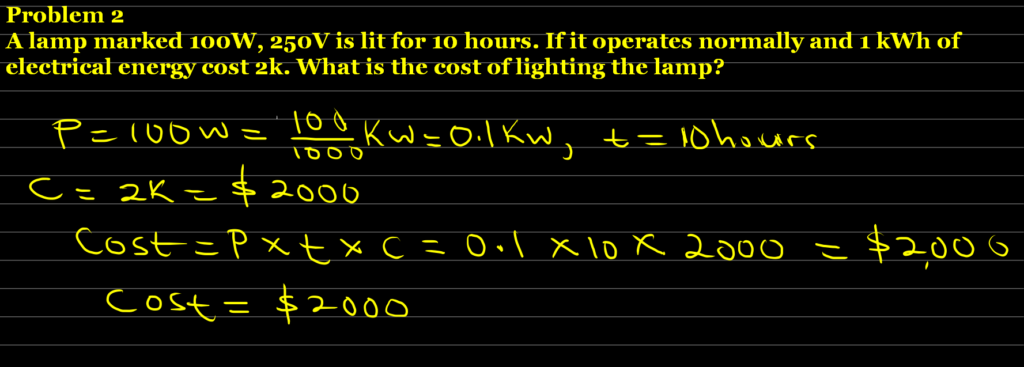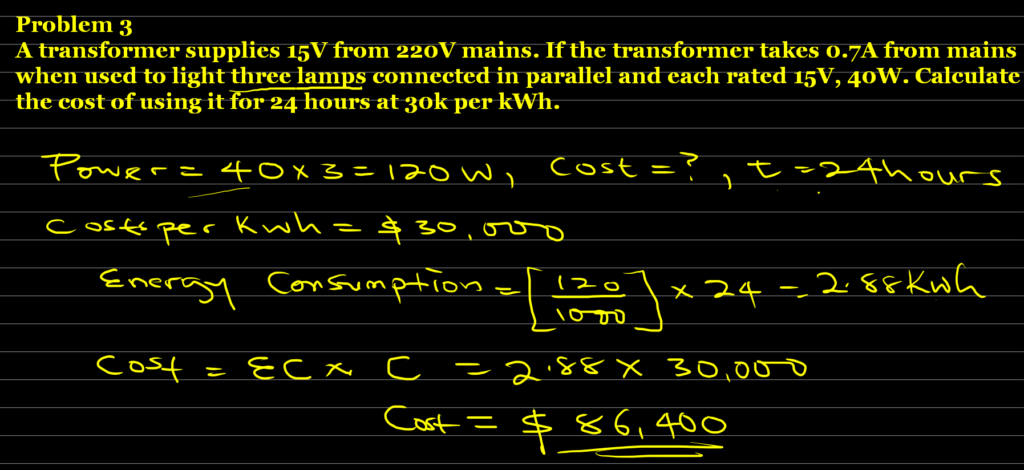Cost of Electricity per kWh: Explained
Electricity is the lifeblood of modern society, powering our homes, businesses, and industries. As we use electricity to light our homes, charge our devices, and operate machinery, it is important for us to understand the cost associated with this indispensable resource. The cost of electricity per kWh (kilowatt-hour) plays a significant role in determining your monthly utility bills. In this comprehensive guide, you will learn how to calculate cost of electricity per kwh, the factors that influence it, tips on managing your energy consumption, and answer common questions about electricity costs.

The formula for calculating the cost of electricity per kilowatt hour is:
Cost per kWh = [Cost] / [Energy consumption (kWh)]
The cost of electricity per kWh refers to the amount of money you’re charged for each kilowatt-hour of electricity you consume. This cost is determined by various factors, including:
Energy Source
The type of energy source used to generate electricity significantly impacts its cost. Renewable sources like solar, wind, and hydroelectric power tend to have lower operating costs, resulting in a lower cost per kWh. In contrast, non-renewable sources like coal, natural gas, and oil can lead to higher costs due to fuel and maintenance expenses.
Infrastructure and Maintenance
The infrastructure required to produce, transmit, and distribute electricity also influences its cost. Investments in power plants, transmission lines, substations, and maintenance activities contribute to the overall cost per kWh.
Demand and Supply
Supply and demand dynamics play a crucial role in determining electricity costs. During periods of high demand, such as hot summer days when air conditioners are running at full blast, electricity prices may surge due to increased strain on the grid.
Regulatory Factors
Government regulations, taxes, and subsidies can impact the cost of electricity. Renewable energy incentives and taxes on carbon emissions can both directly and indirectly affect electricity prices.
Geographic Location
The cost of electricity can vary based on your geographic location. Factors such as the availability of energy resources, transmission infrastructure, and local regulations can all contribute to regional differences in electricity costs.
How to Calculate Cost of Electricity Per kwh
Calculating the cost of electricity per kWh is a straightforward process. Follow these steps to estimate your electricity expenses:
- Check Your Bill: Review your electricity bill to find the total kWh consumed during the billing period.
- Identify the Cost: Locate the total cost of your electricity bill for the same period.
- Divide and Calculate: Divide the total cost by the total kWh consumed to find the cost per kWh.
For example, if your bill is $150 and you consumed 200 kWh, the cost per kWh would be $150 / 200 kWh = $0.75/kWh.
We can equally use the formula below to calculate the cost of electricity in Joules:
One kilowatt-hour (1kWh) = 1 x kW x 1hr = 1 x 103 x 60 x 60 = 3.6 x 106 J
Ways to Calculate the Cost of Electricity Per kWh
Here is a brief list of ways to calculate the cost of electricity per kWh:
- Simple Division Method: Divide the total cost of electricity (in currency) by the total kWh consumed.
- Utility Bills: Analyze your utility bills, which usually provide the total cost and total kWh consumed during a billing period. Divide the cost by the kWh to get the cost per kWh.
- Time of Use Rates: If you have varying rates based on the time of day, calculate the cost for each time period separately and then find the average cost per kWh.
- Tiered Pricing: For tiered pricing, where different usage levels have different rates, calculate the cost for each tier and then sum them up to get the total cost. Divide by the total kWh to find the average cost per kWh.
- Demand Charges: If you have demand charges, calculate the total cost for both energy and demand charges and divide by the total kWh to get the overall cost per kWh.
- Renewable Energy Credits: If you generate your own electricity from renewable sources, consider factoring in any credits received for excess generation.
- Fixed Fees: Take into account any fixed fees or service charges that might be included in your electricity bill, as they can affect the overall cost per kWh.
- Net Metering: If you’re using net metering with solar panels, the calculation involves factoring in both energy produced and energy consumed from the grid.
- Data Logging Devices: Use data logging devices to track your real-time electricity consumption and correlate it with time periods and rates to calculate accurate costs.
- Seasonal Variations: Consider any seasonal variations in electricity usage, as rates or consumption patterns might change throughout the year.
You must remember that the exact method you use may depend on the specific billing structure and regulations of your utility provider.
You may also like to read:
Examples of How to Calculate the Cost of Electricity Per kWh
Here are a few examples to guide you on how to calculate the cost of electricity per kWh
Example 1
A household refrigerator consumes electrical energy at the rate of 200W. If electricity costs 5k per kWh. Calculate the cost of operating the appliance for 30 days.

Solution
Data:
To calculate the cost of operating the refrigerator for 30 days, we need to determine the total energy consumed by the refrigerator during that time period and then calculate the cost based on the electricity cost per kWh.
Step 1: Calculate the energy consumption:
Energy consumption (kWh) = Power (kW) × Time (hours)
Since the power of the refrigerator is given in watts (W), we need to convert it to kilowatts (kW):
Power (kW) = Power (W) / 1000
Given: Power = 200W, Time = 30 days × 24 hours/day
Step 2: Calculate the cost:
Cost = Energy consumption (kWh) × Cost per kWh
Given: Cost per kWh = 5k (5,000 rupees)
Let us now solve the problem:
Step 1:
Power (kW) = 200W / 1000 = 0.2 kW
Time = 30 days × 24 hours/day = 720 hours
Energy consumption (kWh) = 0.2 kW × 720 hours = 144 kWh
Step 2:
Cost = 144 kWh × 5,000 $/kWh = $720,000
Therefore, the cost of operating the refrigerator for 30 days would be $720,000.
Example 2
A lamp marked 100W, 250V is lit for 10 hours. If it operates normally and 1 kWh of electrical energy cost 2k. What is the cost of lighting the lamp?

Solution
Data:
Power, P = 100W
Voltage, V = 250V
Time, t = 10 hours
1kWh = 2k
Power in kWh x Time = (100/1000)kW x 10 = 0.1 x 10 = 1kWh
We can now say 2k x 1kWh = 2k
Thus, the cost of lighting the lamp is 2k
Example 3
A transformer supplies 15V from 220V mains. If the transformer takes 0.7A from mains when used to light three lamps connected in parallel and each rated 15V, 40W. Calculate the cost of using it for for 24hrs at 30k per kWh.

Solution
Data:
Current, I = 0.7A
Voltage, v = 220V
Power = 154W
The power in kWh which is consumed in 24hrs is
Power x Time = (154/1000)kW x 24hrs = 3.696kWh
The cost of power consumed for 24hrs at 30k per kWh is 3.696kWh x (30/100) = N 1.1
Tips for Managing Your Electricity Costs
Managing your electricity consumption can lead to significant savings over time. Here are some practical tips to help you reduce your electricity costs:
Energy-Efficient Appliances
Invest in energy-efficient appliances that have earned the ENERGY STAR certification. These appliances consume less energy, ultimately reducing your electricity usage and costs.
Unplug Devices
Even when not in use, devices on standby mode can still draw power. Unplug chargers, electronics, and appliances when they’re not actively being used.
Smart Thermostats
Install a smart thermostat that adjusts the temperature based on your preferences and schedule. This can prevent excessive heating or cooling when it’s not needed.
LED Lighting
Replace traditional incandescent bulbs with energy-efficient LED bulbs. LEDs use significantly less energy and have a longer lifespan.
Seal Leaks and Insulate
Ensure your home is well-insulated and free of drafts. Proper insulation prevents heat loss in the winter and keeps your home cooler in the summer, reducing the need for excessive heating and cooling.
Time-of-Use Plans
Consider switching to a time-of-use electricity plan if offered by your utility company. These plans offer lower rates during off-peak hours, encouraging you to shift energy-intensive tasks to those times.
FAQs about the Cost of Electricity per kWh
Q: What is a kilowatt-hour (kWh)? A: A kilowatt-hour (kWh) is a unit of measurement that represents one kilowatt of power consumed over the course of one hour. It’s commonly used to measure electricity consumption.
Q: How can I lower my electricity bill? A: Lower your electricity bill by using energy-efficient appliances, reducing unnecessary usage, and adopting energy-saving habits.
Q: Are electricity costs the same throughout the year? A: No, electricity costs can vary based on factors like demand, supply, and seasonal changes. Prices may be higher during peak demand periods.
Q: Can renewable energy sources help lower electricity costs? A: Yes, utilizing renewable energy sources like solar panels or wind turbines can lower electricity costs in the long run by reducing reliance on non-renewable sources.
Q: Do energy-saving practices really make a difference? A: Absolutely! Small changes, such as turning off lights when not in use or using energy-efficient appliances, can collectively lead to significant energy and cost savings.
Q: How can I find the best electricity plan for my needs? A: Research different electricity plans offered by your utility company, comparing rates, contract terms, and any special features that align with your consumption patterns.
Check our Websites:
Arewagist – Health and Nutrition
Wokminer – Apply for jobs